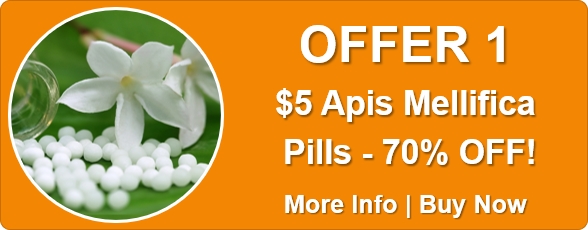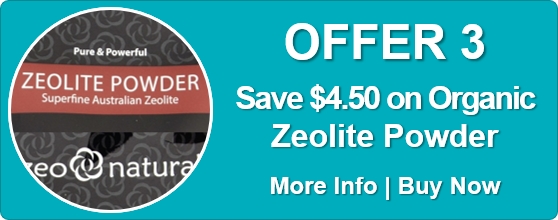TGA Response: Comments and Concerns
 Unfortunately, we can’t provide a template letter
Unfortunately, we can’t provide a template letter
But, we have listed some helpful guidelines below to help you write your own response. (Your words will produce a much better result with the TGA than multiple copies of a template response).
Our suggestions are arranged from the simplest to the detailed, and responses don’t have to be long or perfect – short and sweet is often equally effective.
The simple response
If you are concerned that Option 4 of the TGA Consultation will restrict homeopathic information and remedies, and your access to them, you must at the very least say “No!” to Option 4 when you write your response. It’s that simple.
Examples of how homeopathy has helped you or your family would also be helpful.
The “middling” response
If you wish to add more detail to your response, feel free to draw from the following points and concerns:
- The TGA is there to protect your safety in relation to medicines and treatment, not to restrict your access to safe medicines.
- The TGA and every drug regulating authority around the world considers homeopathic remedies to be “low-risk” medicines – there’s no reason for that position to change now.
- Consumers and users of homeopathy (including you), do not want:
- Self-help information about homeopathy and the symptoms and ailments it treats, restricted.
- Homeopathic prescribers to be stopped from providing that information, or prescribing homeopathic remedies.
- Regulations designed for high-risk medicines applied to homeopathy which, by the TGA’s own description, is a “low-risk” medicine.
- Consumer and user access to homeopathic remedies restricted.
- Changes to the regulations that would inhibit, restrict, or deny the importation, exportation, or manufacture of homeopathic remedies by homeopathic manufacturers and pharmacies.
- Changes in the current regulations that would either encourage or make it easier for those antagonistic to homeopathy to lodge vexatious complaints.
- For the above reasons, Option 4 of the consultation should not be adopted.
The detailed response
You are welcome to draw from these additional concerns and questions when preparing your response.
Homeopathy worldwide
- Homeopathy is recognised by the World Health Organization (WHO) as the most popular and widely used complementary medicine worldwide. Entire communities depend on it for healthcare and the prevention of epidemic disease. That being so, why would the TGA consider restricting the access of Australians to it?
- The Swiss Report on Homeopathy says, “There is sufficient evidence for the preclinical effectiveness in the clinical efficacy of homeopathy and for its safety and economy compared with conventional treatment.” That being the case, why did the TGA exclude this favourable report from its consultation paper yet refer to two negative reports, one of which is currently before an Australian ombudsman for bias and irregularities, and the other, already rejected by the UK Parliament?
- Why would the TGA consider removing the access of Australians to homeopathic information and products when, based on the evidence, the TGA’s Swiss counterpart has given homeopathy the same status as conventional medicine in regard to health insurance?
- By not recognizing homeopathic remedies as therapeutic goods in Option 4 of the consultation, the TGA will be out of step with other governments, worldwide, who do.
The NHMRC report
Why does the TGA draw from a report being investigated for complaints of serious irregularities, some of which include:
- conflicts of interest,
- bias and absence of fairness,
- the withholding of important information and commentary from the Australian public, and
- the expectation that homeopathy should meet a much higher standard of evidence than that set for other therapies or medicines – conventional or complementary?
The right to choose
- The TGA’s role is to ensure that the products and treatments available to Australians are safe for use. It is not to arbitrarily decide what the Australian public can and can’t use especially when safety, as with homeopathy, is not an issue.
- Australians have the basic right to choose treatments which best suit them. Government agencies should not regulate to restrict their access to information about that treatment.
Evidence is easily found
- In referring to the flawed NHMRC report, the TGA says regulating homeopathic products as part of evidence-based medicine will be an “issue”. The inference is that the NHMRC report is correct and there is no evidence for homeopathy. A significant and growing body of evidence is available for those prepared to look. [See the Homeopathic Research Institute as one source:) Why does the TGA ignore this in favour of flawed reports?
- Millions of people worldwide acknowledge the benefits of homeopathy. It would not be growing at the rate it is if it didn’t work.
HECS Debts
Option 4 threatens the very practice of homeopathy. Will student HECS debts be repaid by government if they can no longer work in the area of their training?
Safety
- Unlike prescription drugs which “contributed to 330 of the state’s 420 overdose deaths in 2015” in Victoria alone, there is no evidence to suggest that homeopathics have harmed or contributed to the death of anyone. (http://www.abc.net.au/news/2016-04-05/pharmaceutical-drugs-in-nearly-80pc-of-victorian-overdose-deaths/7300036).
- Homeopathy should not be restricted by regulations used by “high-risk” drugs.







